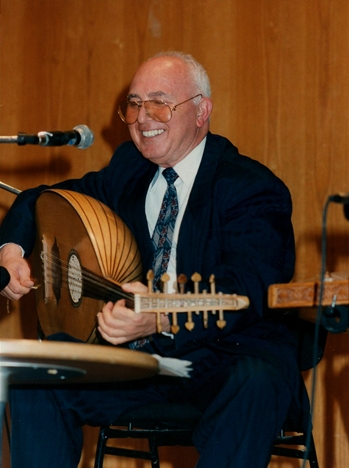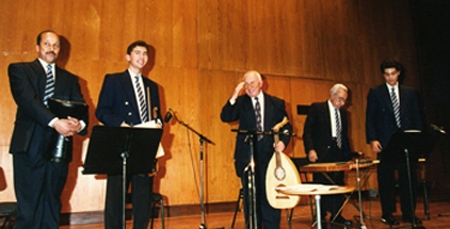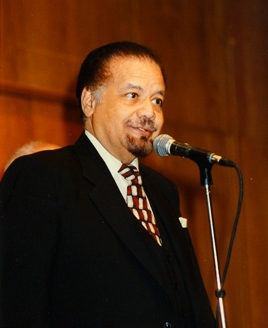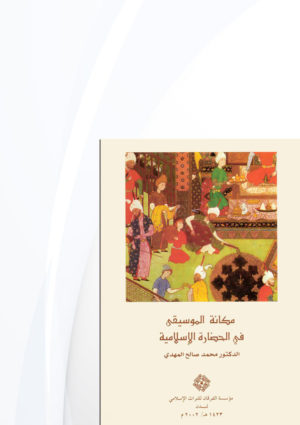The well-known Tunisian jurist and composer Dr Muhammad Sālih al-Mahdī delivered a lecture and performance on Music in Muslim Civilisation on 2nd of May 1996, in the Purcell Room at the Royal Festival Hall on the South Bank, London.

Dr al-Mahdi started with the songs of the trade caravans in pre-Islamic days and went on to give a richly detailed account of the development of the art (some would say the science) of music in the great cultural centres of Muslim Cairo, Baghdad and Hejaz. He cited documented historical events of the life of the Prophet (pbuh) and the lives of the caliphs expressing their attitude to music. He discussed some of the leading figures (such as Tuways and Ibn Misjãh) who contributed to the Musical life of the area.
According to Muhammad Sālih al-Mahdī, music as part of Islamic civilisation has a special character distinguishing it from the music of other civilisations throughout history. It represents the epitome of what is best in all the people and nations which adopted Islam as their faith. For Islam was open to all cultures and their arts, provided they had no connection with paganism and did not violate the basic precepts of the faith, especially that of the oneness of God. Islam cherishes good taste and beautiful voices and the Prophet himself listened to and praised the beauty of the voice of Abū Musá al-Ash’arī, especially in reciting the Qur’ān.

He reviewed the written musical heritage since al-Kindi, al-Farabi and Ibn Sina and gave an account of the main maqamat and instruments of Muslim music. He also described the nourishing inter-action between the Arab, the Persian and the Turkish musical traditions and the role of the Sufi orders in serving the musical heritage.
After the lecture, Dr al-Mahdi gave a recital in which he played the ‘ud and sang, accompanied by Abd al-Qadir al-Jaziri on qanun, ‘Abd al-Nasir al-Ahmar on tabla, and by his own two grandsons, Qays and Faris Sanchou on violin and flute respectively.

Dr al-Mahdi’s delight in the theory and practise of music transmitted itself to his audience, whose enthusiasm was shown when they spontaneously participated in the song with which he ended his performance: the Purcell room rang to four hundred voices joyfully singing in praise of the Prophet.


